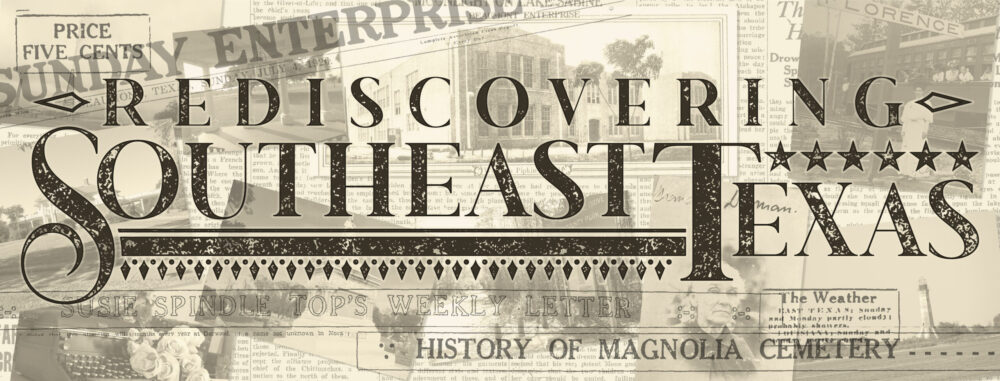On July the 10th, I attended a workshop about preserving oral history. The workshop focused specifically on interviewing World War 2 veterans. I found this workshop both fascinating and helpful in respect of historical data gathering. I love history, and have spoken to some people in my life, who are no longer here, and from whom I believe we all could have learned a thing or two from. Their thoughts and comments are still recorded in my memory, but alas, I wish I would have been more apt to record their views, history, and ways of life.
One person, who was a major influence in my life, was a Louisiana-born resident (Leesville, La) named Roy. He was my neighbor when I lived in Port Arthur, Texas. Roy was a product of the Depression and lived his life accordingly. He also lived the way Roy wanted; doing what Roy wanted to do, and not bothering about anyone else.
Roy may have come across as mean and ornery at times, but under that gruff demeanor, he had a heart of gold. Roy would help anyone who showed up on his doorstep. And there were many who showed up.
Roy was a carpenter by trade, and a farmer by habit. He grew up in the 1920s and worked on his parents’ farm from a young age. He spent countless hours tending the fields and learning the art of agriculture. (And there is an art to it as he explained to me one day.)
He also attended school, learning the basics—even some Latin. Later in life, he had told me that he had dropped out of school for a short time, but a teacher convinced him to go back and thus changed his life. Roy was no scholar, but he learned early in life that hard work and an education (in whatever field you were working) could only help you succeed. And he did; working in numerous fields in his 90-odd year lifespan.
One thing that I remember from our numerous talks was his involvement at the New Orleans shipyard during WWII. Roy helped build many a ship to the particular specifications of the naval fleet.
“Everything had to be perfect or they would make you do it again and again,” I remember him saying. I also remember Roy telling of ships that had headed out the Mississippi delta and out to sea, only to end up at the bottom of the Gulf of Mexico courtesy of a German U-boat torpedo.
In 1950, Roy and his wife moved to Port Arthur where he worked as a carpenter for many years. He was a member of the local union, but as I stated earlier, Roy did what Roy wanted, and that did not always sit well with others.
During a strike by the carpenters’ union, Roy decided to build his brother-in-law’s home across the street. To certain union members, this was somehow a violation of strike rules. Roy, defiantly, built the house anyway, with a gun on his hip just in case the union made good on their threats. Fortunately, those individuals never followed through, and left Roy alone to finish the house. (If I remember correctly, the total cost of the house was $750. No wonder the union was perturbed.)
Roy went on to work for a prominent home builder in the area, but then started his own business building homes. Many trusted Roy and knew that they were getting their money’s worth for his services.
Like I said earlier, he was a child of the Depression, and he threw nothing away. He had numerous tools, tractors, and other artifacts that would entice any picker. I can remember a Jefferson County extension agent one day arriving at Roy’s house and noticing the 60-plus-year-old Farmall tractor, still in use. It was as if the early memories of his childhood came flooding back to him. I knew he wanted that tractor, and even asked to buy it, but that was Roy’s pride and joy. He would never sell it.
Roy had many “play prettys” as he called them. The Farmall tractor, a Ford tractor, two forklifts, and a backhoe, all of which he used constantly. I remember I had bought a chainsaw that extended 15 feet out. It was great for standing on the ground and trimming branches 15 feet up, but Roy had a better idea. Since there were webworms in his pecan trees, he thought it would be a good idea to hoist me up on a forklift 23 feet in the air with saw in hand. This would be the only time. My tree-trimming days were over before they started.
Roy was an avid farmer; he grew corn, tomatoes, butter beans, squash, potatoes, etc. In the later years in which I knew him, this was his life. There was never a day gone by without seeing him on that red Farmall tractor, tilling up new ground for planting.
Roy also had a healthy obsession with bees. He taught me that, without bees, there would be no agriculture. Something had to pollinate all the crops, and with no bees, it would be impossible to maintain production. Whether it’s your own little plot or a commercially grown one, these little critters hold the key to our existence.
I knew Roy for a little under 20 years, and as I said before, he was a big influence in my life. He taught me much, and I will always remember those times. He wasn’t a scholar, he wasn’t a professor, but in his own way, he was my teacher. He taught me the old ways, and how things should be. I will never forget him.
